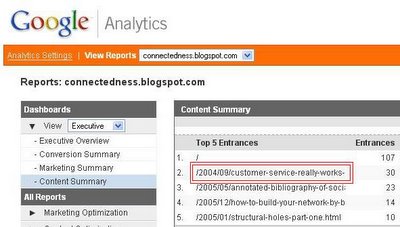Related to my last post on social commerce, the NY Times published a column last Sunday by Rob Walker, "Getting through the filter." Sometimes, it seems, we insist on buying things even when it is clear they don't work. I tip my hat to the marketers of the world who know how to work that trick. Also, for those unfamiliar with collaborative filtering, you may enjoy this Wikipedia primer as a complement to Rob Walker's article; his title is a clever double-reference to air filters (as a consumer product) and collaborative filtering (as a mechanism influencing our purchasing decisions).
This work is licensed under a Creative Commons Attribution-ShareAlike 2.5 License and is copyrighted (c) 2006 by Connective Associates except where otherwise noted.
This work is licensed under a Creative Commons Attribution-ShareAlike 2.5 License and is copyrighted (c) 2006 by Connective Associates except where otherwise noted.









